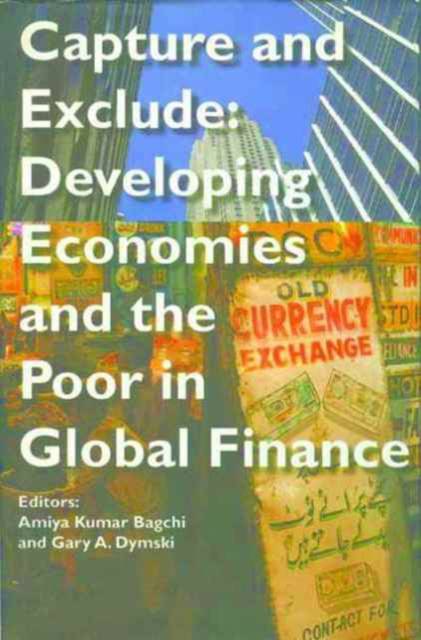
- Retrait gratuit dans votre magasin Club
- 7.000.000 titres dans notre catalogue
- Payer en toute sécurité
- Toujours un magasin près de chez vous
- Retrait gratuit dans votre magasin Club
- 7.000.000 titres dans notre catalogue
- Payer en toute sécurité
- Toujours un magasin près de chez vous
Capture and Exclude
Developing Economies and the Poor in Global Finance
Amiya Kumar Bagchi, Gary A. Dymski
Livre relié | Anglais
66,45 €
+ 132 points
Description
The essays gathered in this book address two broad questions. What are the legacies of the imperial age and the colonial epoch, in the capitalist economy of the present day? And what challenges do global financial dynamics pose for developing countries, and for lower- and middle-income households?
Increasing cross-border economic flows have attracted ever more attention. Ironically, cross-border financial relations are centuries old: they date to the birth of the modern nation-state, and, indeed, emerged under the dual shadows caste by imperialism and colonialism. Under colonialism, the financial flows were asymmetric, almost always flowing from the periphery to the core. This historical fact has a continuity in the world economy's financial core - the US, Western Europe, Japan, and newly emerging urban East Asia, and a few selected regions elsewhere. There, globalization has, in the past quarter-century, provided ever more investment and credit options for firms and consumers with access to what Marx would have called 'world money'. But any balance-sheet of the contemporary impacts of cross-border financial flows for nations outside this global core - that is, formerly colonialized and imperially dominated areas - would look quite different. Certainly, there are global 'financial citizens' in these countries, who have benefited from freer global financial flows. But, overall, these nations' macroeconomies have been compromised by contractionary policies forced on them due to recurrent cross-border financial crises; further, many micro-economic tragedies have unfolded in the wake of these macroshocks. The chapters in this book investigate three interlocking domains: the terrain of ideology about how global financial markets are supposed to work, across nations and across agents; the terrain of institutions and market structures; and the terrain of macro-economic and regulatory policy. Special attention is paid to the situation of India. This book demonstrates that, because asymmetric power rooted in imperialism and exploitation underlies the current era, exclusion and fragility are persistent features of the world in which we live.Spécifications
Parties prenantes
- Auteur(s) :
- Editeur:
Contenu
- Nombre de pages :
- 356
- Langue:
- Anglais
Caractéristiques
- EAN:
- 9788189487263
- Date de parution :
- 01-08-07
- Format:
- Livre relié
- Format numérique:
- Genaaid
- Dimensions :
- 160 mm x 249 mm
- Poids :
- 680 g







